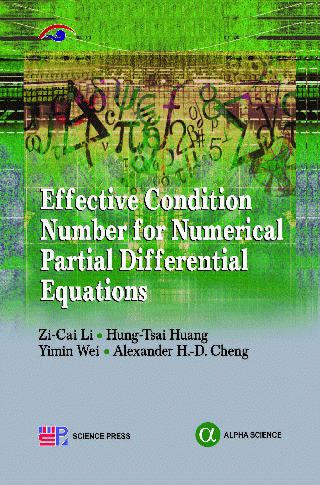About the book For a numerical method, its stability is a crucial issue in the sense that an unstable algorithm can render it useless in practical computation. For an over-determined linear algebraic equation , its stability is typically evaluated by using the traditional condition number, Cond= , where and are the maximal and the minimal singular values of matrix , respectively. In this book, the concept of an effective condition number, Cond_eff= , is introduced. Cond_eff is smaller, and generally much smaller, than Cond, and is a better stability criterion. The Cond_eff can be used as an estimation on stability for the numerical solutions of partial differential equations (PDEs) using algorithms, such as the collocation Trefftz method, the spectral method, the finite difference method, and the finite element method. An analysis of stability integrated with errors is the focus of this book. |



